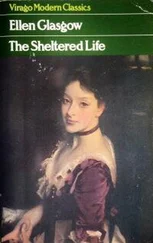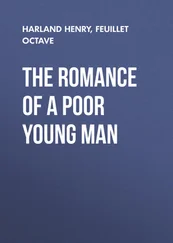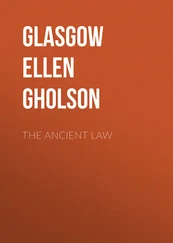Ellen Glasgow - The Romance of a Plain Man
Здесь есть возможность читать онлайн «Ellen Glasgow - The Romance of a Plain Man» — ознакомительный отрывок электронной книги совершенно бесплатно, а после прочтения отрывка купить полную версию. В некоторых случаях можно слушать аудио, скачать через торрент в формате fb2 и присутствует краткое содержание. Жанр: Технические науки, foreign_antique, foreign_prose, на английском языке. Описание произведения, (предисловие) а так же отзывы посетителей доступны на портале библиотеки ЛибКат.
- Название:The Romance of a Plain Man
- Автор:
- Жанр:
- Год:неизвестен
- ISBN:нет данных
- Рейтинг книги:4 / 5. Голосов: 1
-
Избранное:Добавить в избранное
- Отзывы:
-
Ваша оценка:
- 80
- 1
- 2
- 3
- 4
- 5
The Romance of a Plain Man: краткое содержание, описание и аннотация
Предлагаем к чтению аннотацию, описание, краткое содержание или предисловие (зависит от того, что написал сам автор книги «The Romance of a Plain Man»). Если вы не нашли необходимую информацию о книге — напишите в комментариях, мы постараемся отыскать её.
The Romance of a Plain Man — читать онлайн ознакомительный отрывок
Ниже представлен текст книги, разбитый по страницам. Система сохранения места последней прочитанной страницы, позволяет с удобством читать онлайн бесплатно книгу «The Romance of a Plain Man», без необходимости каждый раз заново искать на чём Вы остановились. Поставьте закладку, и сможете в любой момент перейти на страницу, на которой закончили чтение.
Интервал:
Закладка:
"Dat's Miss Sary's chile. She ran away wid Marse Harry Mickleborough, in Marse Bland's lifetime, en he 'ouldn't lay eyes on her f'om dat day ter his deaf. Miss Mitty en Miss Matoaca dey ain' ole, but Miss Sary she want nuttin' mo'n a chile w'en she went off."
"But why did her father never see her again?"
"Dat was 'long er Marse Mickleborough, boy, but I ain' gwine inter de ens en de outs er dat. Hit mought er been becaze er Marse Mickleborough's fiddle, but I ain' sayin' dat hit wuz er dat hit wuzn't. Dar's some folks dat cyarn' stan' de squeak er a fiddle, en he sutney did fiddle a mont'ous lot. He usen ter beat Miss Sary, too, I hyern tell, jes es you mought hev prognosticate er a fiddlin' man; but she ain' never come home twel atter her pa wuz daid en buried over yonder in Hollywood. Den w'en de will wuz read Marse Bland had lef ev'y las' cent clean away f'om her en de chile. Atter Miss Mitty en Miss Matoaca die de hull pa'cel er hit's er gwine ter some no 'count hospital whar dey take live folks ter pieces en den put 'em tergedder agin."
"You mean the little girl won't get a blessed cent?" I asked, and my toes pinched the head of the dandelion until it dropped from its stem.
"Ain't I done tole you how 'tis?" demanded the negress in exasperation, rising from her seat on the curbing, "en wat mek you keep on axin' over wat I done tole you?"
She went off muttering to herself, while she clenched the stem of her corncob pipe between her toothless gums; and picking up my basket and whistling to Samuel, I walked slowly downhill, with the problem of the future working excitedly in my brain.
"A market boy is obliged to be a common boy," I thought, and immediately: "Then I will not be a market boy any longer."
So hopeless the next instant did my present condition of abject ignorance appear to me, that I found myself regretting that I had not asked advice of the aged negress who had rested beside me in the shadow of the sycamore. I wondered if she would consider the selling of newspapers a less degrading employment than the hawking of vegetables, and with the thought, I saw stretching before me, in all its alluring brightness, that royal road of success which leads from the castle of dreams. One instant I resolved to start life as a fruit vender on the train, and the next I was wildly imagining myself the president of the Great South Midland and Atlantic Railroad, with a jingling bunch of seals and a gold-headed stick. When at last I reached the Old Market I found that the gayety had departed from it, and it appeared slovenly and disgusting to my awakened eyes. The fruit and vegetables, so fresh and inviting in the early morning, were now stale and wilted; a swarm of flies hung like a black cloud around the joint suspended before the stall of Perkins, the butcher; and as I passed the stand of the fish dealer, the odour of decaying fish entered my nostrils. Was it the same place I had left only a few hours before, or what sudden change in myself had revealed to me the grim ugliness of its aspect? "He's a common boy," the little girl had said of me almost four years ago, and I felt now, as I had felt then, the sting of a whip on my bare flesh at her words. Come what might I would cease to be "a common boy" from that hour.
In the afternoon I bought an armful of "The Evening Planet," and wandered up Franklin Street on a venture, crying the papers aloud with an agreeable assurance that I had deserted huckstering to enter journalism. As I passed the garden of the old grey house my voice rang out shrilly, yet with a quavering note in it, "Eve-ning Pla-net!" and almost before the sound had passed under the sycamores, the gate in the wall opened cautiously and one of the ladies called to me timidly with her face pressed to the crack. The two sisters were so much alike that it was a minute before I discovered the one who spoke to be Miss Matoaca.
"Will you please let me have a paper," she said apologetically, "we do not take it. There is no gentleman in the house. I – I am interested in the marriages and deaths," she added, in a louder tone as if some one were standing close to her beyond the garden gate.
As I gave her the paper she stretched out her hand, under its yellowed lace ruffle, and dropped the money into my palm.
"I shall be obliged to you if you will call out every day when you pass here," she remarked, after a minute; "I am almost always in the garden at this hour."
I promised her that I should certainly remember, and she was about to draw inside the garden with a gentle, flower-like motion of her head, when a gentleman, with a gold-headed walking-stick in his hand, lunged suddenly round the smaller sycamore at the corner, and entrapped her between the wall and the gate before she had time to retreat.
"So I've caught you at it, eh, Miss Matoaca!" he exclaimed, shaking a pudgy forefinger into her face, with an air of playful gallantry. "Buying newspapers!"
Poor Miss Matoaca, fluttering like a leaf before this onslaught of chivalry, could only drop her bright brown eyes to the ground and flush a delicate pink, which the General must have admired.
"They – they are excellent to keep away moths!" she stammered.
The sly and merry look, which I discovered afterwards to be his invincible weapon with the ladies, appeared instantly in his watery grey eyes.
"And you don't even glance at the political headlines? Ah, confess, Miss Matoaca."
He was very stout, very red in the face, very round in the stomach, very roguish in the eyes, yet I realised even then that some twenty years before – when the results of his sportive masculinity had not become visible in his appearance – he must have been handsome enough to have melted even Miss Matoaca's heart. Like a faint lingering beam of autumn sunshine, this comeliness, this blithe and unforgettable charm of youth, still hovered about his heavy and plethoric figure. Across his expansive front there stretched a massive gold chain of a unique pattern, and from this chain, I saw now, there hung a jingling and fascinating bunch of seals. The gentleman I might have forgotten, but that bunch of seals had occupied for three long years a particular corner of my memory; and in the instant that my eyes fell upon it, I saw again the ragged hill covered with pokeberry, yarrow, and stunted sumach, the anchored vessel outlined against the rosy sunset, and the panting stranger, who had stopped to rest with his hand on my shoulder. I remembered suddenly that I wanted to become the president of the Great South Midland and Atlantic Railroad.
He stood there now in all his redundant flesh before me, his large mottled cheeks inflated with laughter, his full red lips pursed into a gay and mocking expression. To me he personified success, happiness, achievement – the other shining extreme from my own obscurity and commonness; but the effect upon poor little Miss Matoaca was quite the opposite, I judged the next minute, from the one that he had intended. I watched her fragile shoulders straighten and a glow rather than a flash of spirit pass into her uplifted face.
"With your record, General Bolingbroke," she said, in a quavering yet courageous voice, "you may refuse your approval, but not your respect, to a matter of principle."
The roguish twinkle, which was still so charming, appealed like the lost spirit of youth in the General's eyes.
"Ah, Miss Matoaca," he rejoined, in his most gallant manner, "principles do not apply to ladies!"
At this Miss Matoaca drew herself up almost haughtily, and I felt as I looked at her that only her sex had kept her from becoming a general herself.
"It is very painful to me to disagree with the gentlemen I know," she said, "but when it is a matter of conviction I feel that even the respect of gentlemen should be sacrificed. My sister Mitty considers me quite indelicate, but I cannot conceal from you that – " her voice broke and dropped, but rose again instantly with a clear, silvery sound, "I consider that taxation without representation is tyranny."
Читать дальшеИнтервал:
Закладка:
Похожие книги на «The Romance of a Plain Man»
Представляем Вашему вниманию похожие книги на «The Romance of a Plain Man» списком для выбора. Мы отобрали схожую по названию и смыслу литературу в надежде предоставить читателям больше вариантов отыскать новые, интересные, ещё непрочитанные произведения.
Обсуждение, отзывы о книге «The Romance of a Plain Man» и просто собственные мнения читателей. Оставьте ваши комментарии, напишите, что Вы думаете о произведении, его смысле или главных героях. Укажите что конкретно понравилось, а что нет, и почему Вы так считаете.












